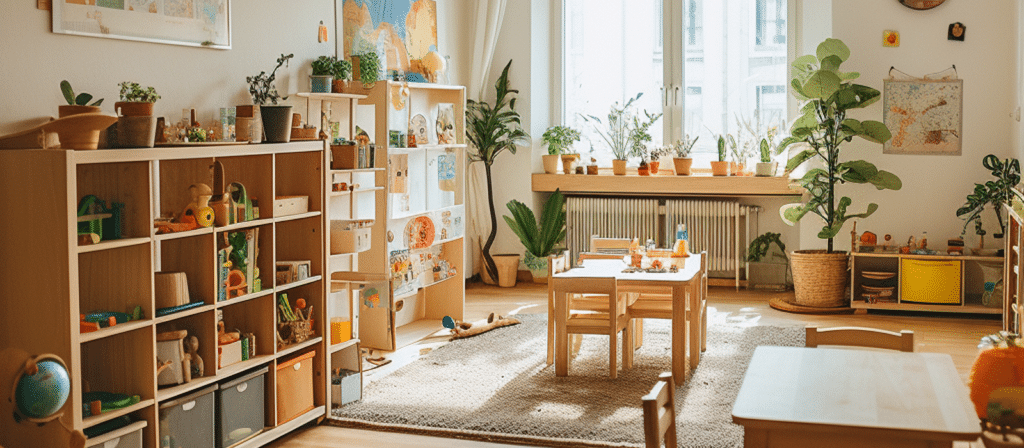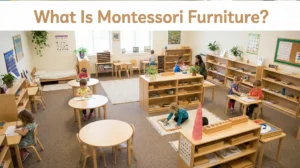Are you looking to create an optimal learning environment for your preschoolers, one that nurtures language and literacy skills from a young age? The right furniture can make all the difference. Join us as we explore the world of preschool furniture selection and how it can significantly impact language and literacy development.
Choosing Preschool Furniture for Language and Literacy Development involves selecting items that support early childhood education goals. It’s about creating an environment that encourages communication, exploration, and the building of foundational literacy skills.
Why is preschool furniture important for language and literacy development?
Preschool furniture goes beyond just providing a place to sit or play; it can greatly impact a child’s language and literacy development. The right furniture can create a comfortable and inviting space that encourages children to engage in language-rich activities. It can also promote social interaction, collaboration, and independent exploration, all of which are essential for language and literacy development.
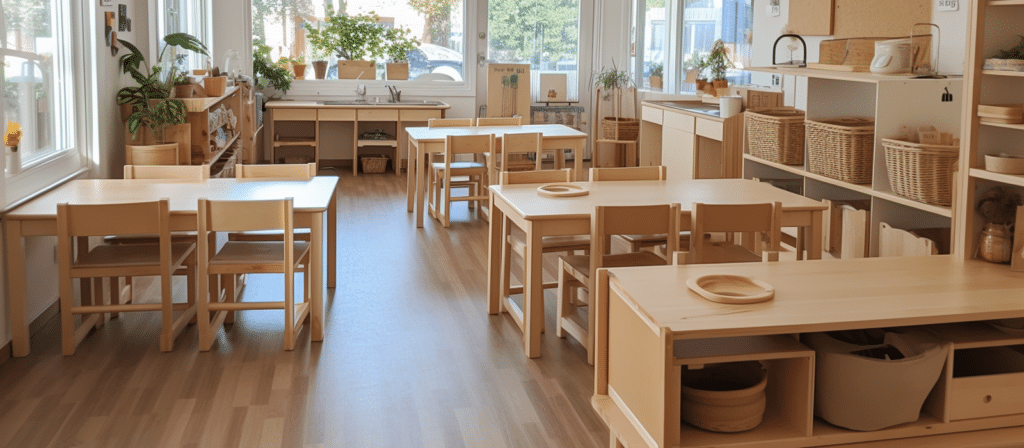
What factors should you consider when choosing preschool furniture for language and literacy development?
- Comfort: Comfortable seating options are crucial for prolonged engagement in language and literacy activities. Look for chairs and sofas with appropriate padding and back support to ensure that children can focus on learning without discomfort.
- Ergonomics: Proper ergonomics are essential for healthy posture and physical development. Choose furniture that is appropriately sized for young children, with adjustable features to accommodate their growing bodies.
- Versatility: Opt for furniture that offers versatility in its design and functionality. Tables and chairs that can be rearranged or easily transformed into different configurations allow for flexible learning environments that can cater to different activities.
- Durability: Preschool furniture endures constant use and rigorous play. Invest in furniture made from durable materials that can withstand the wear and tear of daily use. Sturdy construction will ensure that the furniture lasts for years to come.
- Safety: Safety should always be a top priority when selecting preschool furniture. Look for furniture that meets safety standards and has rounded edges, non-toxic finishes, and secure fastenings to prevent accidents and injuries.
What specific furniture items can enhance language and literacy development?
- Reading Nooks: Create cozy reading nooks with soft seating, cushions, and shelves filled with a variety of age-appropriate books. A comfortable and inviting reading space can motivate children to explore and discover the joy of reading.
- Writing Centers: Set up writing centers with child-sized tables, chairs, and storage for writing materials. Include a variety of writing tools such as pencils, crayons, and markers to encourage children to express themselves through writing and drawing.
- Listening Stations: Equip your preschool with listening stations that consist of headphones, audio players, and a collection of audiobooks or stories. Listening to stories helps develop listening comprehension, vocabulary, and storytelling skills.
- Role-Play Areas: Incorporate role-play areas into your preschool environment. Furnish these areas with child-sized furniture, such as kitchen sets, grocery stores, or doctors’ clinics. Role-play encourages language development through pretend play and interaction with peers.
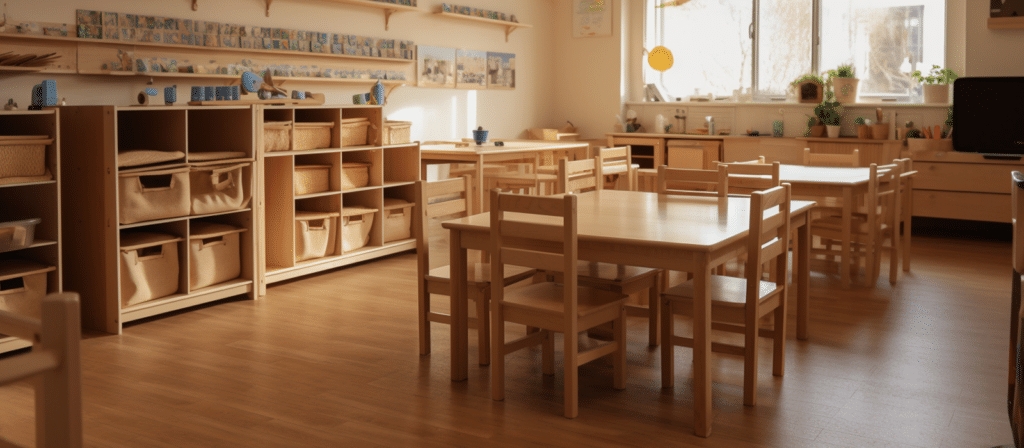
How can the layout and arrangement of furniture impact language and literacy development?
The layout and arrangement of furniture can greatly influence the way children interact with each other and engage in language and literacy activities. Here are some tips for optimizing the layout:
- Open Spaces: Create open spaces that allow for free movement and easy access to different learning areas. This encourages children to explore and engage in language-rich activities independently.
- Grouping Furniture: Arrange furniture in small groups or clusters to facilitate social interaction and collaboration. This setup promotes language development through conversations, sharing ideas, and working together on projects.
- Inviting Displays: Use furniture to showcase children’s artwork, projects, or books. This not only provides a sense of pride and ownership but also creates opportunities for language-rich discussions and storytelling.
- Clear Pathways: Ensure that furniture placement allows for clear pathways and easy navigation. This helps children move around the learning environment without obstacles, promoting a sense of independence and exploration.
Incorporating technology in preschool furniture for language and literacy development
While it is essential to provide hands-on, tactile experiences for language and literacy development, incorporating technology can also be beneficial. Interactive whiteboards, tablets, and educational software can enhance language skills, vocabulary development, and phonics understanding. When selecting furniture with built-in technology, consider factors such as durability, ease of use, and appropriate height for young learners.
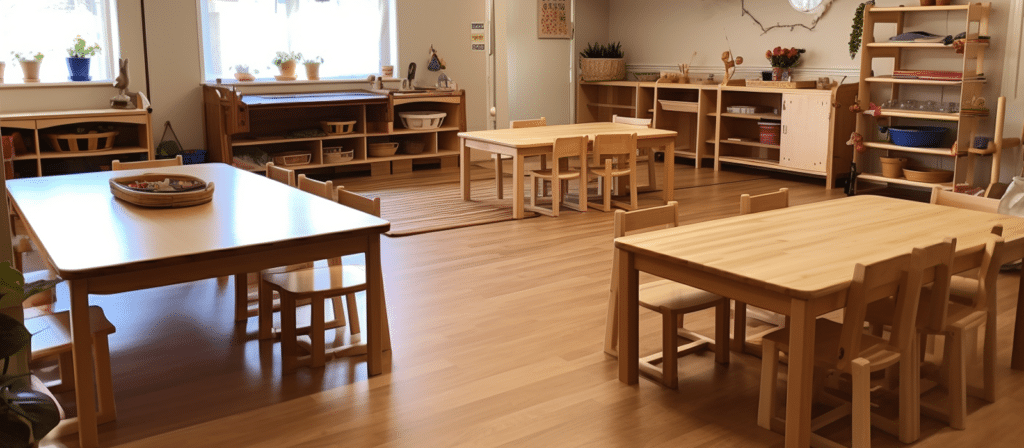
Conclusion
Choosing the right preschool furniture is a crucial step in creating an environment that supports language and literacy development. By considering factors such as comfort, ergonomics, versatility, durability, and safety, you can create an engaging and conducive space for young children to develop their language skills. Remember to incorporate specific furniture items such as reading nooks, writing centers, listening stations, and role-play areas to further enhance language and literacy development. With the right furniture and thoughtful layout, you can create an environment that fosters a love for language and sets children on a path to lifelong literacy.

